
Photo by Ziph on Unsplash
Introduction:
Women have always been at the heart of stories; sometimes as the silent sufferers, other times as the quiet rebels, and often as the relentless fighters who refuse to give up despite all odds. The books in this collection are books that tell the stories of women, their struggles, and their survivorship. These books take us into the lives of women who live in a world that often tries to diminish them, to belittle them, to keep them as ‘a secondary sex.’ Yet these women emerge as symbols of courage and hope. From forbidden love in war-torn lands to the quiet battles fought within the confines of a home, these stories talk about the indomitable spirit of women.
Each of these stories mentioned below offers a unique perspective on womanhood, their struggles, sacrifices, and silent battles that often go unnoticed. They reveal how almost every woman carries the weight of history, culture, and expectations and still gathers the courage to dream and fight in odd ways. These stories don’t just talk about pain; they celebrate the power that women hold. Through these pages, we are reminded of the universal threads of love, loss, and hope that bind women across time, geography, and circumstance.
And why am I sharing sad stories about women? Because I believe that sadness has the power to connect us on a deeper level than happiness ever could. Happy reading!
A Thousand Splendid Suns by Khaled Hosseini
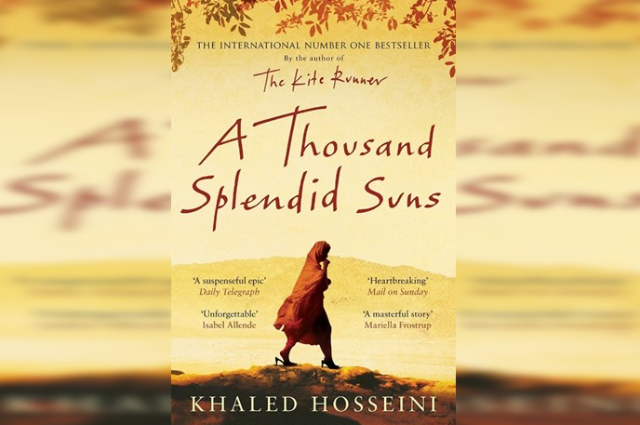
A Thousand Splendid Suns by Khaled Hosseini / Image by Amazon
A Thousand Splendid Suns by Khaled Hosseini is a book that stays with you long after you finish reading it. This book tells the story of two women whose lives are intertwined by fate.
The first half of the book focuses on Mariam, a young girl born out of wedlock. Raised by her single mother, Nana, Mariam grows up longing for her father, Jalil, who doesn’t openly accept her but showers his love in private. Her life takes a drastic turn when Jalil promises to take her to the cinema but fails to show up. Desperate to see him, Mariam ventures to his house and faces a harsh truth she wasn’t prepared for. That’s the day her world crumbles. That’s when she realizes her mother was right about her father—her mother was right about men. Little did Mariam know that this was the end of her childhood, the end of a life that perhaps had a little bit of love in it. Betrayed by the person she loved the most; Mariam’s life takes an irreversible turn. The further chapters take us into her life, a life steeped in patriarchy, misogyny, rigid gender norms, restrictions of movement, and an utter lack of autonomy.
In the latter half, the story shifts to Laila. Laila was a brave child, lost in the world of childhood love and affection. But, as mentioned earlier, destiny had its plans. Everything comes to an end for her too, just like it did for Mariam. Both their lives change in a day, though in different ways, dealt different blows by fate.
Both women lose everything they hold dear. Eventually, their paths cross. At first, their relationship is strained, shaped by what is often called "patriarchal bargaining"—a way women navigate their roles within oppressive systems to survive. But over time, their shared pain, love, and grief bring them closer.
This book takes you through a journey of love, betrayal, hope, and, most of all, womanhood—the pain of being a woman, the unending strength, and the sacrifice these women embody. No matter how patriarchy views women or how hard it tries to suppress them, women are inherently stronger—not stronger than men, but stronger than anyone who tests their strength and womanhood.
One of the most heart-wrenching parts of the book is the letter from Mariam’s father. In it, he confesses how he mistreated her for the sake of societal expectations and how, in the face of war, all of it now seems so trivial. His regret is heartbreaking because it shows how war takes away everything, including our humanity. It reminds us never to wait for the “right time” to say the things we need to say—to tell the people we love that we care, to apologize, and to make amends.
A Thousand Splendid Suns also offers a glimpse into the daily lives of Afghan people, filled with terror. It paints a picture of a much harder life for women who are no more than puppets in the hands of their husbands, who are beaten for not wearing their burqa properly, or for forgetting to leave home without a male companion. It reveals how Afghanistan has lost so much; more than just a country, it has lost its true identity. The book shows how strength and suffering go hand in hand with the lives of Afghan people.
Hosseini doesn’t hold back, and the book often feels like an unrelenting tide of despair. Yet, it also reminds us to cherish the good in our lives—the freedom, education, and kindness we might otherwise overlook.
This is not a book for everyone. It’s emotionally heavy, and if you’re in a fragile state of mind, it may be best to approach it cautiously. But if you’re ready to face its stark realities, A Thousand Splendid Suns will leave an indelible mark. It’s a tribute to the resilience of Afghan women and a reminder of both the cruelty and beauty humanity is capable of.
It’s the kind of story that lingers, teaching you never to take for granted the simple, beautiful things in life. It’s the kind of book that keeps haunting you long after you’ve finished reading it. It’s the kind of book that will stay in your subconscious mind forever. You must read this book if you love sad but hopeful stories, books that make you kinder, more empathetic, and a better human being with every page turned.
A House Without Windows by Nadia Hashimi
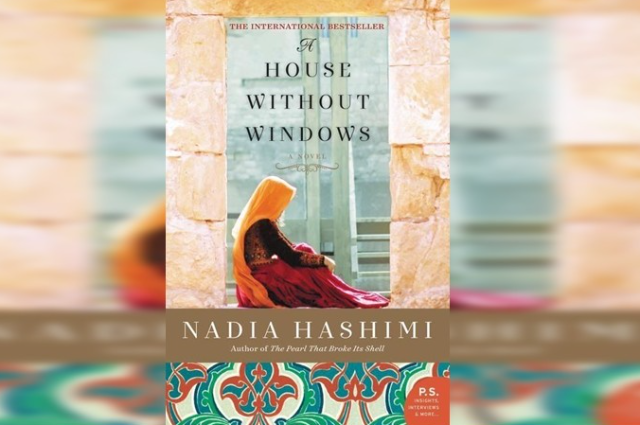
A House Without Windows by Nadia Hashimi is a book that demands your attention and leaves you questioning the world long after you’ve closed its final pages. It begins with a scene that shakes the core of a small Afghan community: Kamal, a husband and father, is found dead, a hatchet buried in his skull. Standing near him is Zeba, his wife, drenched in blood and silent. All evidence points to her guilt. But is it really that simple? That’s the question you carry with you as the story unfolds, layer by layer.
Zeba’s silence is deafening, but it speaks volumes. Her world turns upside down when she is thrown into a women’s prison in Kabul on the accusation of her husband’s murder. In this prison, she meets three women—Latifa, Nafisa, and Mezhgan—who each have their own heartbreaking stories. Even though these women come from different places in Afghanistan, there is something that binds them: a reality they can’t escape no matter how hard they try. That reality is the society they live in, a society that punishes women harshly for stepping out of lines made by men. Many of these women are imprisoned for zina, which means “crimes” that involve sex outside marriage. In contrast, men are neither bound by the same rules nor punished for breaking them. They don’t even have these rules. They are freer than the birds whose freedom is often stolen by these same men, who fire bullets into the air to showcase their masculinity.
In this book, women are not just oppressed—they are trapped, judged, and silenced. Zeba’s life with Kamal was no different. Her marriage was a storm she had to weather. It was a place where moments of calm were always followed by violent outbursts. Kamal, far from a loving husband, ruled their home with control and cruelty. And yet, like so many Afghan women, Zeba bore it quietly. Because that’s what women are taught: to keep family matters private, no matter how much they hurt.
But Hashimi doesn’t just stop at telling Zeba’s story. She pulls back the curtain on Afghanistan’s broken justice system and reveals how superstition often outweighs evidence. There are no fingerprints taken, no DNA tests conducted, and no room for fairness. The system is stacked against women from the start. For Zeba, justice feels like a distant dream—a fight she never asked for but must now endure.
Yusuf is the lawyer in this story who is tasked with defending Zeba. He returns to Afghanistan after years in the US and battles not just for Zeba’s freedom but also against a deeply flawed justice system. When he investigates Zeba’s case, he finds out truths that go beyond the crime—truths that force him and the reader to confront the complexities of justice and family.
At its core, A House Without Windows is a story about survival, love, and forgiveness. It’s about women who refuse to break, even when their worlds seem determined to crush them. Hashimi’s storytelling is slow and deliberate, but every moment carries a weight. Her characters are real, their struggles raw, and their determination inspiring.
This isn’t just a book about crime or punishment; it’s about the quiet strength it takes to endure and the hope that exists even in the darkest places. Like Zeba, many women fight battles the world will never see. And through her story, Hashimi gives these women a voice.
Lives Not Lived by Monika Bhatti
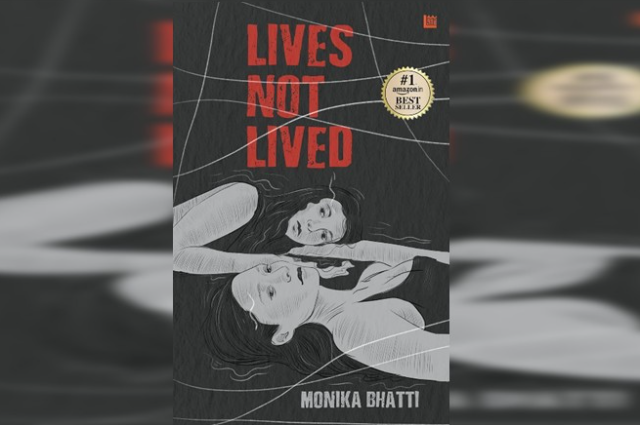
Lives Not Lived by Monika Bhatti narrates the intertwined stories of two women. These women belong to different generations and lead completely different lives, yet their paths cross due to a few significant incidents.
The first story is about a girl named Naina, a curious and outspoken child whose tongue runs like a scissor. However, as she grew up, something happened that transformed her completely. What was it? It was patriarchal bargaining where every woman in her household sought to control her life, molding her into an obedient, submissive girl who knew household chores and was confined within the walls of her home. Naina was not allowed to visit others’ houses because "good girls don’t do that." The men in the family also contributed to her oppression, stifling her childhood and leaving her timid, shy, and submissive.
Yet, Naina clung to the dream of getting a good education and breaking free from the fate of the women she knew. However, her dreams came crashing down when she fell in love with a man named Veer. He became the reason for her downfall, and Naina sacrificed everything to gain a sliver of love from him. When she realized the true nature of his love, her world crumbled. Naina sank into depression, wailing like a wounded animal beyond repair. Her life thereafter became a reflection of her traumatic and hurtful past.
The second story is about Haree, a silent and obedient child who rarely experiences love from her parents. After her marriage, she tasted love for the first time through her husband. But her happiness was short-lived as her husband passed away, plunging her into a life she could never have imagined. Haree found herself trapped in a society that mocked widowed women, tortured their existence, and abandoned them in their most vulnerable moments. Haree’s life became mere existence, devoid of true living.
What’s compelling is how Naina’s and Haree’s lives intersected at some point. You would weep upon discovering their fates, shedding tears for all the women endure marital rape, sexual abuse, and molestation. This book would make you want to howl, but no sound would escape your lips. It leaves you empty, with no words to articulate the profound sorrow it evokes.
Lastly, I must say, that this book is triggering for girls and women who have endured the torment I mentioned above.
One Half from the East by Nadia Hashimi
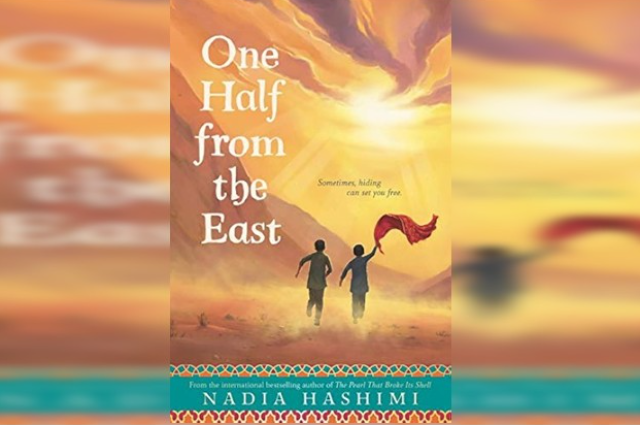
One Half from the East by Nadia Hashimi / Image by Amazon
One Half from the East by Nadia Hashimi is a book that talks about an Afghanistani custom called bacha-posh. It makes readers reflect on identity and the way society shapes the lives of women and girls. The story begins with Obayda and her sisters, who are young teen girls from Kabul, whose lives change in an instant when their father loses his leg in a bomb attack. Suddenly, their family’s life of comfort and stability is replaced by uncertainty and struggle. They leave Kabul for a small, stifling village, a place where everyone knows everyone, and rumors are as permanent as the mountains.
Obayda’s mother, desperate to bring luck and hope to their household, makes a choice that seems odd yet oddly logical in their world. She turns Obayda into a bacha-posh which means a girl dressed and treated as a boy. This change allows families without sons to experience the privileges that a male child brings. For the same reasons, Obayda becomes Obayd and trades her dresses for pants and her braids for a short haircut.
At first, Obayda was very confused about her transformation as a boy. She doesn’t understand why her family thinks pretending to be a boy will fix everything that was wrong with her family. She misses her sisters, her friends, and her life as a girl. But then she meets Rahima, another bacha-posh who has been living this double life longer than Obayda can imagine. Together, they enjoy the uncharted waters of their new identities and the freedom of being boys, with the knowledge that it’s all temporary.
For Obayda, being Obayd is both liberating and confusing at the same time. Now, being a boy (at least from the outside and for society), she can climb trees, run wild, and avoid the endless restrictions placed on girls—restrictions and customs that were previously imposed on her. While being a bacha-posh, she also begins to see the world differently: how boys are treated with respect, allowed to do anything, and allowed to go out of the house at odd hours, and how girls are often made invisible and can do a thing only when they are permitted to do so. And as much as she enjoys her newfound freedom, the thought of returning to her old life as a girl looms over her like a shadow. She lives in constant fear of being a girl again.
Hashimi’s writing captures the bittersweet essence of childhood, where moments of joy are intertwined with the weight of growing up too soon. Through Obayda’s eyes, we see a society bound by traditions that often stifle individuality, especially for women and girls. But we also see the small acts of rebellion, the quiet moments of courage that can ripple outward and bring change.
What makes One Half from the East unforgettable is how it doesn’t shy away from complexity. Obayda’s transformation is not just about her family’s survival or luck; it’s a window into a world where gender dictates opportunity, and every choice feels like a gamble. Rahima’s story adds another layer, showing how the bacha-posh tradition can become both a refuge and a trap, depending on how long it lasts and how deeply it changes the people involved.
At its heart, this book is about finding yourself in a world that keeps trying to tell you who to be. It’s about the quiet strength of girls who dream of climbing higher, running faster, and breaking free. Hashimi paints a vivid picture of Afghanistan; not just its struggles but also its beauty, its traditions, and the unbreakable spirit of its people.
One Half from the East is not just a story about gender or identity—it’s a story about childhood, family, and the courage it takes to imagine a different world. Through Obayda and Rahima, Hashimi reminds us that even in the smallest, most constrained corners of the world, there is room for hope.
The Island of Missing Trees is a novel by Elif Shafak
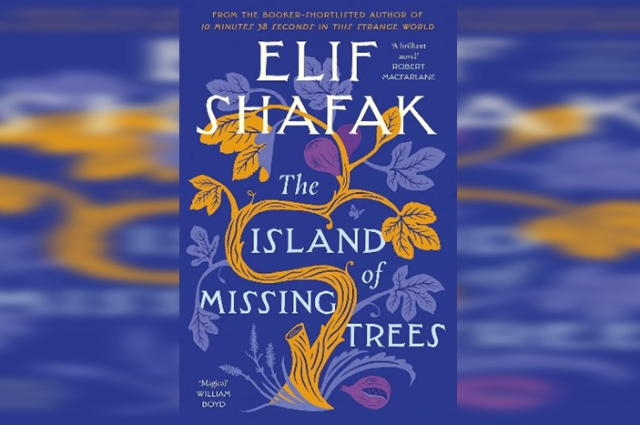
The Island of Missing Trees is a novel by Elif Shafak that was shortlisted for the Women’s Booker Prize. Though the story is not directly based on or solely focused on women, I believe it falls under the category of women-centric books. What I liked most about this book was that it connects everything with nature, and maybe that's the reason I found it women-centric. It makes me think of ongoing ecofeminism and engendering climate change debates.
The story begins with a girl named Ada, the daughter of an immigrant named Kostas, who was a Greek Cypriot. Ada has these unspoken, depressed thoughts that she is not able to understand or resolve. These scars are from her past; the past she didn't live but one her mother did when she carried her in her womb.
The story further takes us back to the lives of Ada’s father, Kostas, and her mother, Define. The story talks about how they fell in love and how political tensions came between their love. How one being Greek and the other being Turkish became a problem in their country. How their forbidden love reveals the complexities of identity, race, and religion.
It's interesting to know that, in between, the narrator is a fig tree that gives a magical touch to the whole story. A tree that stands there as a spectator of all the things happening around, that knows where the scars come from, and that holds history within its roots.
Through this story, the author wants to show us the lingering impact of conflict, war, and fragile relationships on human beings, especially women. Because women are the ones who are left behind to endure betrayal, to endure the pain of people leaving them. It's women who are connected to the soil, culture, and affection that their land has to offer.
This story will make you realize how women are the ones for whom forgetting history is impossible because they live it every day. They churn it, they relive it, in the hope that one day they'll be able to find the missing pieces of good days, in the hope that one day they'll remember something, and it will be alright. They churn history in the hope that it'll give them redemption; they churn history to punish themselves for the things they never did.
